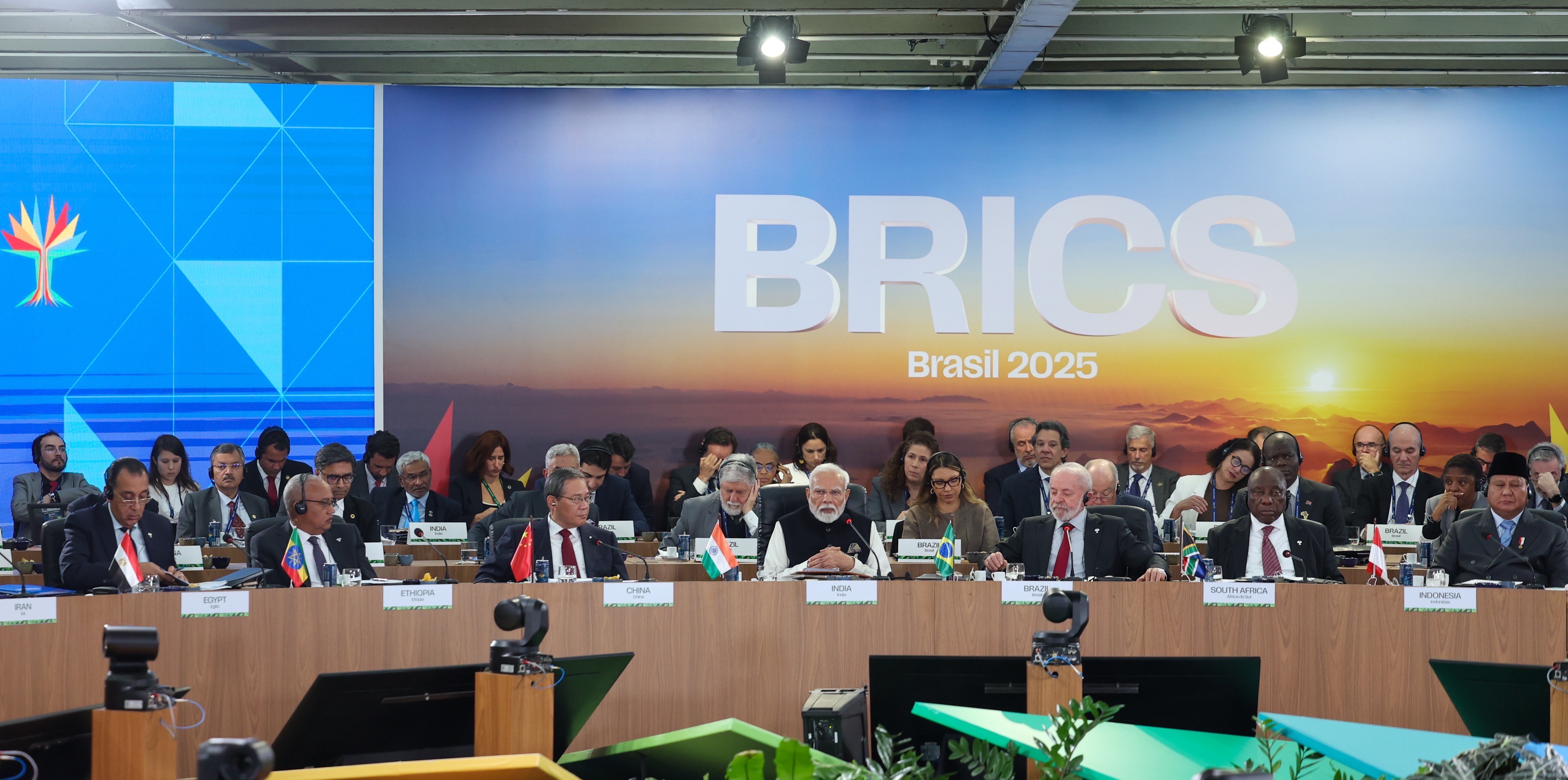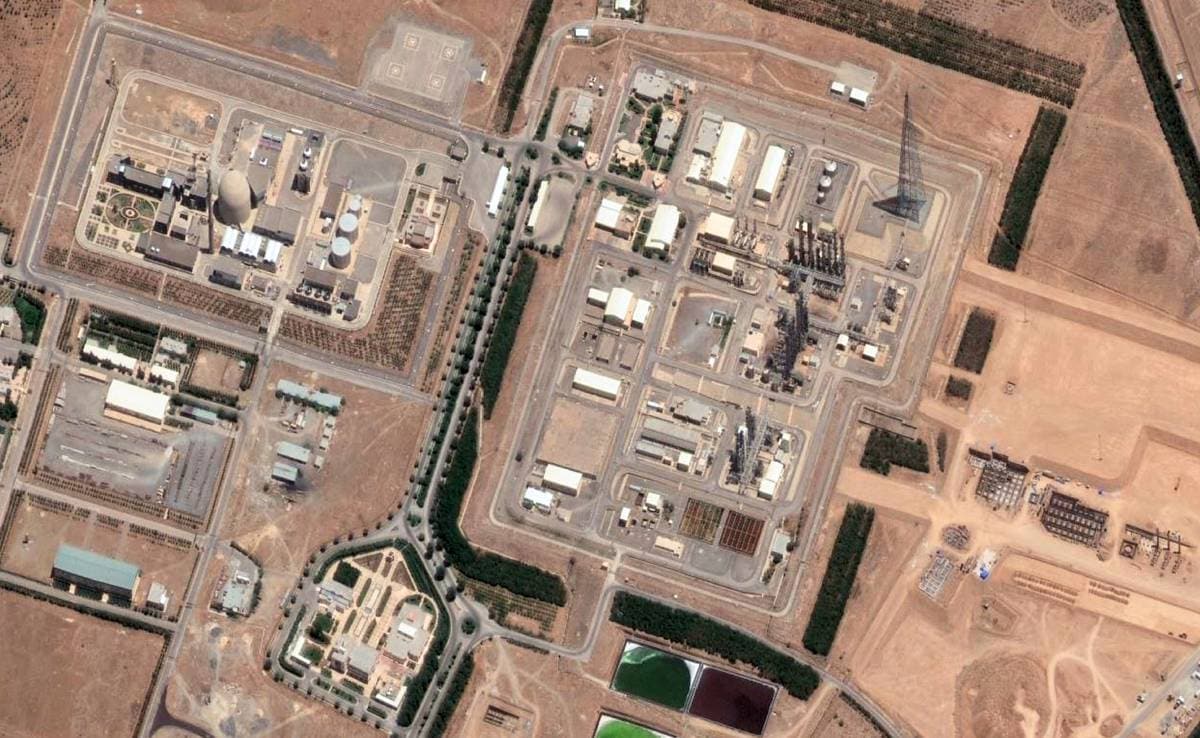From Dollar Challenge To Iran Message: Why Donald Trump Is Targeting BRICS
In a joint statement after the Brasil summit, BRICS leaders, including Prime Minister Narendra Modi, warned of "the rise of unilateral tariff and non-tariff measures which distort trade and are inconsistent with WTO rules".

Round 2 of Donald Trump vs the BRICS bloc began this week after the United States President announced an additional 10 per cent tariff on countries aligning with the group's "Anti-American policies". "There will be no exceptions..." Trump said Sunday night on Truth Social.
The President did not say what these 'anti-American policies' are or specify which of the group's policies he was referring to, although six months ago he did threaten the group with 100 per cent tariffs if they attempted to replace the US dollar as the dominant currency for international trade.
That threat had quite the opposite effect; it pushed BRICS nations into developing local payment systems and other instruments to facilitate commerce and investment between each other.
That, in turn, was after Russia called for the dollar's role in global finance to be 're-assessed', inviting a sharp, if petulant, reply from Trump. "There is no chance BRICS will replace the US Dollar in International Trade... any Country that tries should say hello to Tariffs, and goodbye to America!"
The BRICS' response to Trump's 10 per cent tariff threat was swift and firm.
Brasil President Lula da Silva called it "very mistaken and very irresponsible". "The world has changed. We don't want an emperor. We are sovereign countries," he told a news conference Monday.
READ | 'World Does Not Want 'Emperor': Brazil's Lula After Trump's BRICS Tariff
da Silva also doubled down on the quest to reduce dependence on the dollar - one of the BRICS' long-term goals - and said there was "no going back" on this point, suggesting the process of selecting an alternate currency had already begun and would continue "step by step".
China, in a protracted tariff war of its own with the US, offered a softer counter, telling Trump "trade and tariff wars have no winners and protectionism offers no way forward".

The 17th BRICS summit was held in Brasil over two days starting Saturday, July 6.
South Africa's Cyril Ramaphosa and Bolivia's Luis Arce also spoke out, while Russian Foreign Minister Sergei Lavrov said the US had "flagrantly abused" its position of power in the world trade system.
What Did BRICS Say?
In a joint statement after a two-day summit in Brasil, BRICS leaders, including Prime Minister Narendra Modi, said, "We voice serious concerns about the rise of unilateral tariff and non-tariff measures which distort trade and are inconsistent with WTO (World Trade Organization) rules."
The statement included more references to the "increasing use of tariffs in global trade".
READ | BRICS Nations Raise 'Serious Concerns' Over Donald Trump's Tariffs
It did not mention either Trump or the US, but it did seem to be directed at the American President, who has routinely threatened and bullied other countries - including allies like Japan and the European Union - with high tariff in an attempt to secure trade deals and concessions.
The statement warned that the continued 'indiscriminate' use of tariffs could "reduce global trade, disrupt global supply chains, and introduce uncertainty into international economic and trade activities, potentially exacerbating existing economic disparities".
And then there was the Iran mention.
Tehran is now a full member of the bloc and it was inevitable that the joint statement would mention the military conflict with Israel and the United States' bombing of its nuclear facilities.

American B-2 stealth bombers dropped 'bunker busters' on Iranian nuclear facilities.
The bloc denounced Israel (and the US') attacks on Iran's "civilian infrastructure and peaceful nuclear facilities" as a "violation of international law", although, again, no names were taken.
READ | How The US Used Its 'Bunker Buster' Bombs On Iran's Nuclear Sites
The group also expressed "grave concern" for the Palestinian people over Israeli attacks on Gaza, and condemned the April 22 terrorist attack in Jammu and Kashmir's Pahalgam.
Why Is Trump Targeting BRICS?
Because, despite what economists and policy analysts in the West may say, the bloc appears to be gathering followers and emerging as a challenge to the US and other traditional powers, lending heft, for example, to talk about displacing the dollar as the preferred currency for international trade.
And its increasing influence over the newly-developed, developing, and under-developed economies makes it harder for the US and other western nations to dictate terms when making deals.
The BRICS was established in 2009 (as the BRIC) with Brazil, Russia, India, and China as the founder-nations. South Africa joining in 2010, making it BRICS. That was followed by BRICS+ members Egypt, Ethiopia, the United Arab Emirates, and Iran in 2024, and Indonesia in 2025.
Another 10, including Thailand, Malaysia, Cuba, Nigeria, Uzbekistan, and Kazakhstan have 'partner' status. Saudi Arabia, Turkey, Pakistan, Azerbaijan, and Venezuela want membership.
There have been questions asked of the BRICS' relevance and staying power, particularly since it brings together democracies like India and Brasil with autocracies like Russia and China, and now includes countries with vastly different economic status and conditions.
But the growing list of members and the long waiting list of nations looking to get in underlines the clout the bloc has on the global stage as the voice of the Deep South as industrialised and developing economies try to assert themselves against established powers like the US.
Bolivia's Arce summed it up quite nicely, "... there is a clear struggle between the old stagnant bloc of the US and Europe on side, and the emerging bloc of BRICS countries on the other."
NDTV is now available on WhatsApp channels. Click on the link to get all the latest updates from NDTV on your chat.
-
Opinion | How 12 'Insurers' Sitting In London Paralysed Hormuz - All With A Phone Call
By March 3, maritime tracking platforms recorded zero active tanker transits inside the strait. Simply because the 'underwriter' in London hung up.
-
Khamenei Falls, World Reels: Iran's War Sucks In NATO, Arabs In 72 Hours
Iran's Supreme Leader Ayatollah Ali Khamenei tracked for months in an elaborate espionage operation died Saturday afternoon after a missile struck his compound in the city centre.
-
Opinion | Iranian Ship Sinks: How A 2016 Deal With US Could Spell Trouble For India
Touted as the first major naval casualty in the Indian Ocean since the Second World War, the attack by the US on IRIS Dena brings the Iran crisis eerily close to home. And a 2016 deal with the US isn't helping.
-
Why India Has Never Bought American Fighter Jets
Almost every US fighter aircraft flying missions over Iran, at some point in the last 20 years, had been offered to India
-
Iraq, Iran, And United States-Led Regime Change
Regime change is a key target for the US-Israel war on Iran and the first step killing Supreme Leader Ayatollah Ali Khamenei is complete, but Iran is vastly different kettle of fish.
-
Opinion | Gasping In 4 Days? How Iran Humbled US-Israel's Million-Dollar War Inventory
In the ongoing war, in just four days of battle, there are fears that the US and Israel's inventory of Patriot and Tomahawk missiles may run out soon.
-
Opinion | The Eerily Familiar Game Behind China's Silence On Iran
What looks like a setback for Beijing in West Asia might actually be more leverage - a chance to build long-term capital without firing a single shot.
-
Satellite Pics Show Extent Of Damage By Iran Drones At Saudi Aramco Refinery
Iran Supreme Leader Ayatollah Ali Khamenei was killed on Day 1 of the US-Israel attacks and his death has further complicated an already tense geopolitical situation.
-
Blog | How Did Indians Become So Central To Dubai's Rise? It Goes Deeper Than Oil
The ease with which Indians have made the UAE, particularly Dubai, their home is a familiarity the two nations shared even before the oil boom of the 1970s, or the real estate boom later.
-
News Updates
-
Featured
-
More Links
-
Follow Us On










